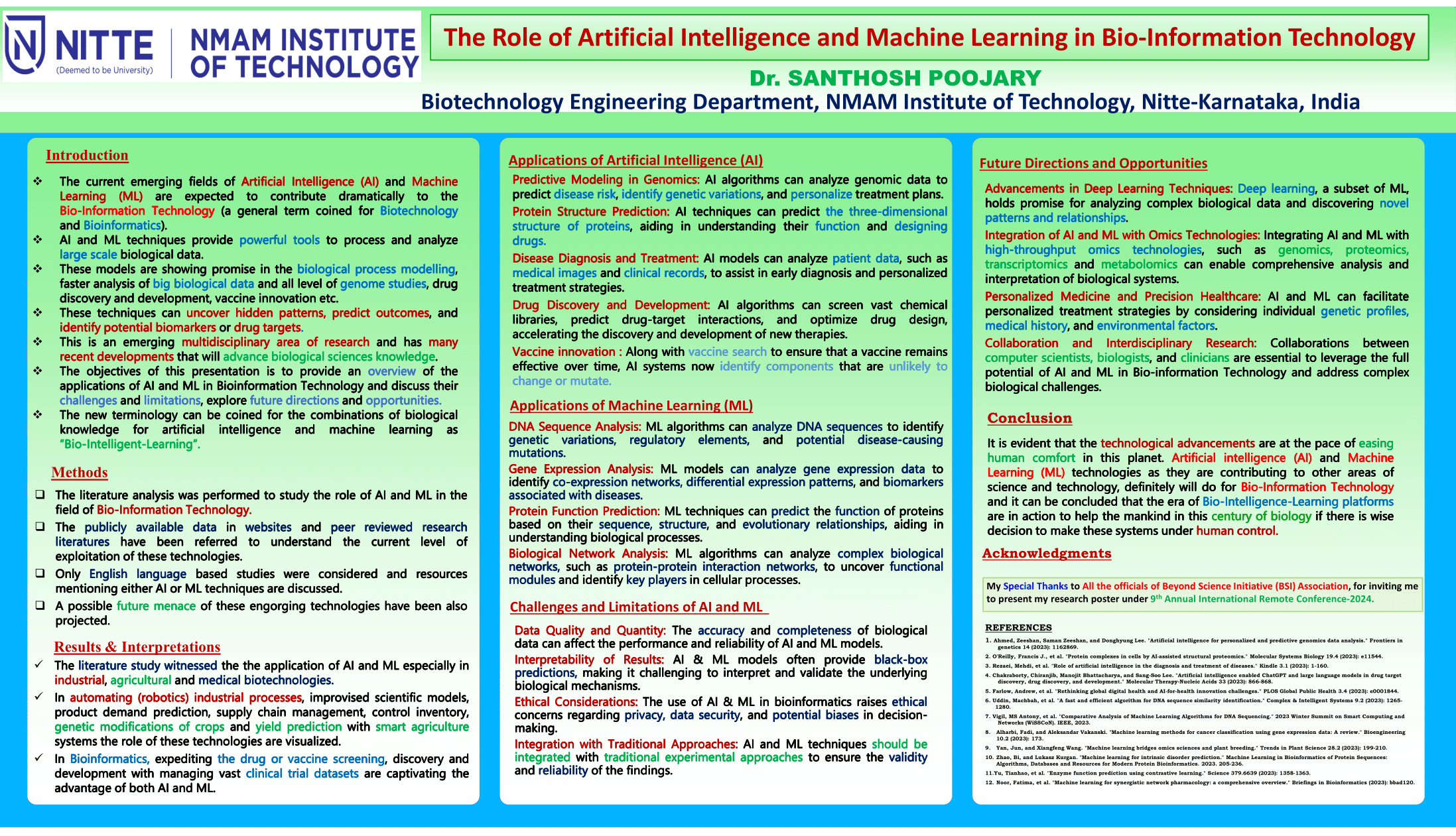Santhosh Poojary
Conference 2024 Poster
Poster Title
The role of Artificial Intelligence and Machine Learning in Bio-Information Technology
Authors and Affiliations
Dr. Santhosh Poojary
Department of Biotechnology Engineering, NMAM Institute of Technology, Nitte-Deemed to be University, Karkala, Karnataka-India
Abstract
Background
The the current emerging fields of artificial intelligence (AI) and machine learning (ML) are
expected to contribute dramatically to the Bio-Information Technology (a general term used for biotechnology and bioinformatics). AI and ML based models are showing promise in the biological process modelling, faster analysis of big biological data and all level of genome studies, drug discovery and development, vaccine innovation etc. The review focuses on the current level of understanding of these technologies and applications.
Methods
The literature analysis was performed to study the role of AI and ML in the field of Bio Information Technology. The publicly available data in websites and peer reviewed research literatures have been referred to understand the current level of exploitation of these technologies. Only English language based studies were considered and resources mentioning either AI or ML techniques are discussed. A possible future menace of these engorging technologies have been also projected
Results
The literature study witnessed the the application of AI and ML especially in industrial, agricultural and medical biotechnologies. In automating (robotics) industrial processes, improvised scientific models, product demand prediction, supply chain management, control inventory, genetic modifications of crops and yield prediction with smart agriculture systems the role of these technologies are visualized. In bioinformatics; expediting the drug or vaccine screening, discovery and development with managing vast clinical trial datasets
are captivating the advantage of both AI and ML. The new terminology can be coined for the combinations of biological knowledge for artificial intelligence and machine learning as “Bio-Intelligent-Learning”. As long as these technologies are under human control, they can be considered as intelligent but there is always a trepidation of Artificial Super Intelligent systems which can become threat to living creatures of the earth.
Conclusions
It is evident that the technological advancements are at the pace of easing human comfort in this planet. Artificial intelligence and machine learning technologies as they are contributing to other areas of science and technology, definitely will do for Bio-Information Technology and it can be concluded that the era of Bio-Intelligence-Learning platforms are in action to help the mankind in this century of biology if there is wise decision to make these systems under human control.


Leave A Comment